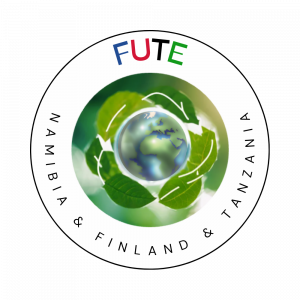FUTE Project on the Move: Reflections from ESERA 2025 in Copenhagen and Self-evaluation workshop from DUCE in Tanzania
by Ella Suortti & Sari Havu-Nuutinen
After a well-deserved summer break, FUTE members across our partner institutions have returned with renewed energy. At the University of Eastern Finland (UEF), we’ve had exciting opportunities to both share about our project and learn from others through international collaboration and dialogue.
At the end of August, we traveled to Copenhagen, Denmark, to participate in the European Science Education Research Association (ESERA) conference. There, we hosted an exploratory seminar. This was a format designed to spark dialogue around a central question or dilemma, encouraging innovative thinking and the exchange of creative research ideas. Our exploratory seminar served as a structured networking forum centered around FUTE’s core themes. Together with session participants from around the world, we explored the question:
What are the core principles of Education for Sustainable Development (ESD) in curriculum development in teacher education?
In small group discussions, we examined curricula across various disciplines, focusing on themes such as social transformation, equity, and inclusion. The open dialogue generated valuable insights and ideas that will help us further strengthen FUTE activities. The suggested themes related to spectrum of global and local sustainability, the relation between theory and practice, competences, and institutional barriers. In addition, the need for awareness and concrete examples were seen essential in curriculum development.

Photo 1. Group work in our exploratory seminar
These seminars often serve as a springboard for future collaborations, and in our case, that’s exactly what happened. During our session, a fellow researcher from Switzerland working on similar themes, proposed co-organizing a symposium at the ECER 2026 conference, which will be held in Finland. This will be another fantastic opportunity to disseminate the FUTE project for international audience.
Our second FUTE-related trip took place during the last week of September 2025, when we traveled to Tanzania. This visit was packed with activities and marked another important step forward for the project. We focused on three main objectives during our time there.
1. Advancing cycle 2 and cycle 3 activities
A key part of our visit was to continue developing our Cycle 2 and Cycle 3 activities. We had the opportunity to meet with our mentees (teacher educators who are currently working to integrate Education for Sustainable Development (ESD) into their teacher education courses). During one of the sessions, Prof. Sari provided a valuable reminder of the goals of this work, the project timeline, and the roles of both mentors and mentees. She emphasized how these efforts will ultimately influence student teachers and their future teaching practices.
Additionally, we held two mentor group meetings, where teacher educators met with their mentors to begin the peer-review process. These sessions were instrumental in fostering collaboration and setting the stage for the next phases of the project.

Photo 2. Some of the key experts and teacher educators meeting at DUCE
2. Building new partnerships
Another important goal of the trip was to establish new connections and explore potential collaborations. We visited several institutions and organizations, including:
- College of Business Education (CBE), where we discussed opportunities for online and blended learning.
- University of Dar es Salaam, where we met with the campus director to strengthen ties, especially as another Finnish project is also collaborating with the university.
- Shule Direct, a local NGO that provides online learning materials and innovative solutions to reach learners, teachers, and schools in rural areas particularly where digital devices are limited. Their work in training educators to use existing online platforms aligns closely with FUTE’s goals. This collaboration with Shule Direct will be especially valuable in Cycle 3, when we begin implementing sustainable mini-projects in local village schools. Their resources and expertise could play a crucial role in supporting our efforts on the ground.

Photo 3. Prof. Sari lecturing at DUCE
3. Self-evaluation workshop with key experts
Our final major activity was organizing a one-day self-evaluation workshop for our Key Experts. This workshop, required by our funder (the Ministry for Foreign Affairs of Finland)focused on reviewing the project’s progress, identifying challenges, and planning the way forward to ensure we meet all agreed objectives. The workshop was conducted in a hybrid format, with participants joining both in person from Tanzania and remotely from Namibia and Finland. We used this moment to reflect goalsand indicators, allowing us to take stock of what we’ve achieved so far, the lessons we’ve learned, and how we can best leverage our existing knowledge and experiences moving forward.
As we all know, the FUTE project is entering its final stretch, with just 10 months remaining. There’s still a lot to accomplish, but with the momentum we’ve built and the partnerships we’ve formed, we’re confident in our ability to finish strong.
